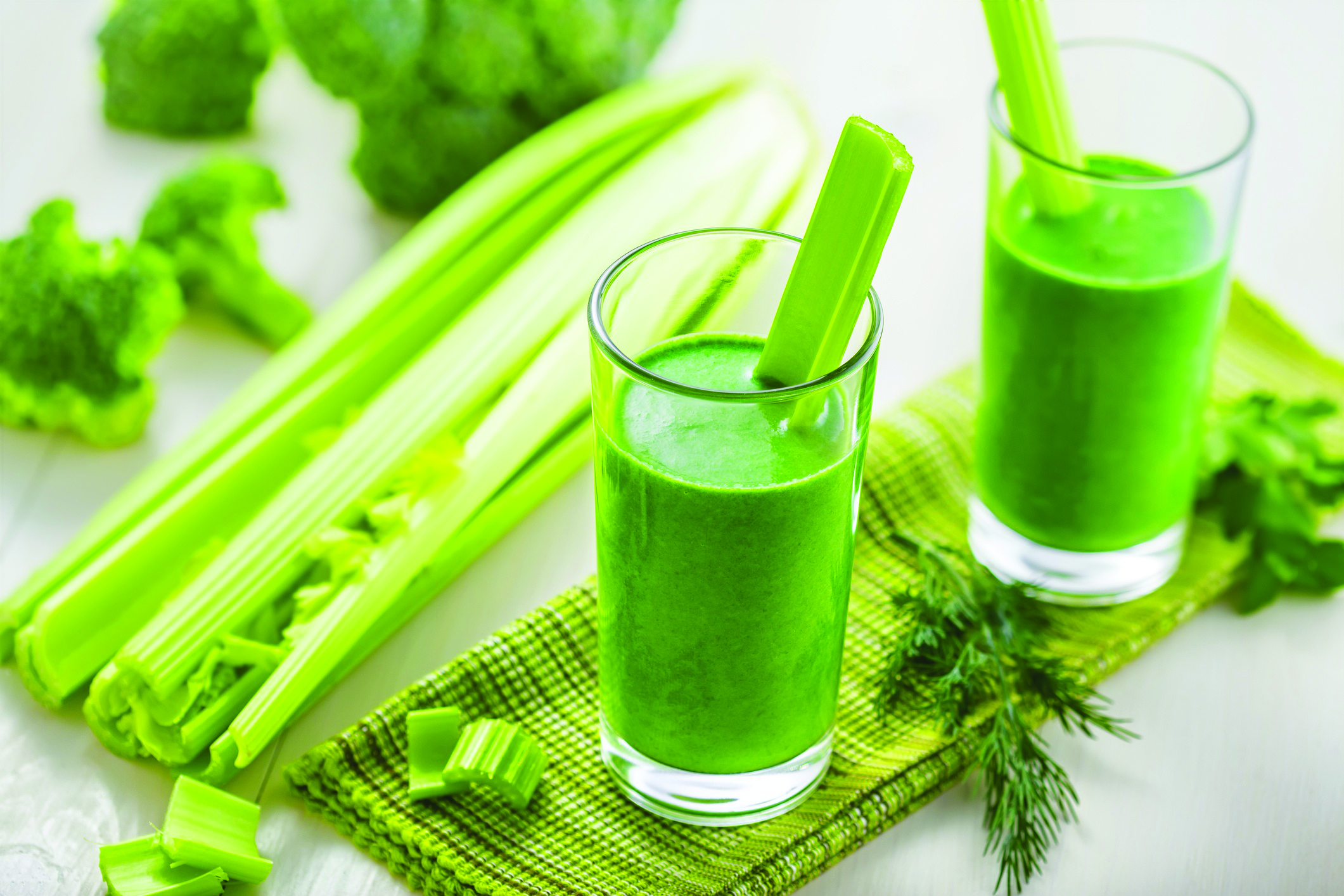
The Benefits of Celery Juice
By Lina Stoyanova
Health or hype, trend or science? Though I certainly can’t read through every piece of research ever published, it’s clear juicing celery has immense health benefits. Though it can’t heal everything, adding celery juice can be beneficial to your diet. As always, please conduct your own research before starting any new health regimen; know I can only fit so much on these pages. If you’d like to learn about celery juice and the benefits it may give you, please keep reading.
I’m sure by now you’ve seen the endless Instagram posts of people juicing this green veggie, smiling, glowing, and raving all about it. The concept of celery juice as a cure-all came from Anthony William (known as Medical Medium), who has been speaking about celery juice for the past 20 years. While William is not a licensed doctor or health care practitioner, he’s garnered a large following in the wellness world. To reap the full benefits of celery juice, he recommends drinking a full 16-ounces of pure celery juice (nothing added to it), on an empty stomach first thing in the morning (or at least 30 minutes before breakfast).
Nutritional Breakdown
Celery is full of antioxidants and contains the following phytonutrients: phenolic acids, flavonols, dihydrostilbenoids, flavones, furanocoumarins and phytosterols. Celery also has a ton of vitamins and minerals like vitamin K, vitamin A, vitamin C, and also contains folate and potassium. Celery is also a good source of dietary fiber: one cup of chopped celery (100 grams), is equivalent to about two and a half medium stalks, and contains 1.6 grams of fiber.
Health Benefits
Celery has many health benefits some of which include lowering inflammation, reducing blood pressure, preventing age-related vision loss, and reducing the risk of cancer. Outlined below are some key health benefits should you wish to try this green drink.
Anti-Inflammatory: Celery contains luteolin (potent flavonoid), that can act as an antioxidant that can calm inflammation. There are studies showing that celery has powerful anti-inflammatory effects due to the phytosterol and unidentified polar substances. These anti-inflammatory properties can help with acid reflux, bloating, IBS, constipation, acne, eczema and other inflammation issues in the body. Celery also contains apigenin (a molecule that is currently being studied for its anti-cancer properties), and a study published in Molecular Nutrition and Food Research investigated whether this chemical might help modify or reduce damage caused by inflammation. The authors concluded that apigenin and apigenin-rich diets reduced the expression of certain inflammatory proteins in mice; they can reduce inflammation and restore immune balance.
Digestion: As shown, celery has powerful anti-inflammatory effects, in addition to a diuretic effect, which brings a number of digestive benefits. Celery can help with water retention, relieve bloating and boost digestion. Celery is also effective in reducing blood pressure because it contains anti-hypertension properties (the fact that it contains magnesium, phthalides, and potassium).
Liver: Celery has detoxifying properties that work to remove bad bacteria, fungi, mold, viruses and many other toxins from the liver. The phytonutrients found in the green stalks also have a protective effect, so conduct your own research if you’re interested in the liver in particular. There are many books written on liver detoxification (what to eat, drink, avoid, etc.), and no matter the “diet” you follow, celery always makes its way on that list.
Healthy Heart: Celery juice is very high in vitamin K which promotes general bone and heart health. There are many studies that have shown that celery consumption can help prevent strokes, lower blood pressure and reduce plaque in arteries.
Nervous System Support: Celery contains bioactive flavonoids that help to fight and prevent cancer cells, and is also high in vitamin C, which is critical for the immune system. Celery is amazing for supporting the nervous system since it has a calming effect due to its detoxifying properties; it also provides support through acting as a blood purifier.
Juice or Smoothie?
Generally speaking, smoothies are better than juice because they retain all of the fiber in the fruits and/or veggies, in addition to helping the body process the sugar slowly. However, when it comes to celery, there’s very little sugar; the reason it’s recommended people drink celery juice is because the juice allows you to get a potent amount of nutrients in one go.
Drink Up: Things to Note
When should you drink celery juice? Celery juice should be consumed immediately upon waking up on an empty stomach for maximum benefits.
How much celery juice should you drink? To reap maximum benefits, drink 16 ounces daily, on an empty stomach in the morning, at least 30 minutes before breakfast.
When will you notice benefits? Normally, you should feel positive changes within 7-14 days, though most people juice daily for 21-30 days. Some immediate benefits can include feeling less hungry, less bloated, having clearer eyes, and enjoying more hydrated and smooth skin.
Ease into it: You might want to start slowly with six to eight ounces and build up to 16 ounces from there. You can add other fruits and veggies to your celery juice but note the health benefits won’t have quite the same impact as pure celery juice. If you cannot stand the taste of celery juice, you can add a cucumber or a green apple until you get used to it.
Lastly, and as always, conduct your own research and consult with your nutritionist or doctor before beginning anything new.
